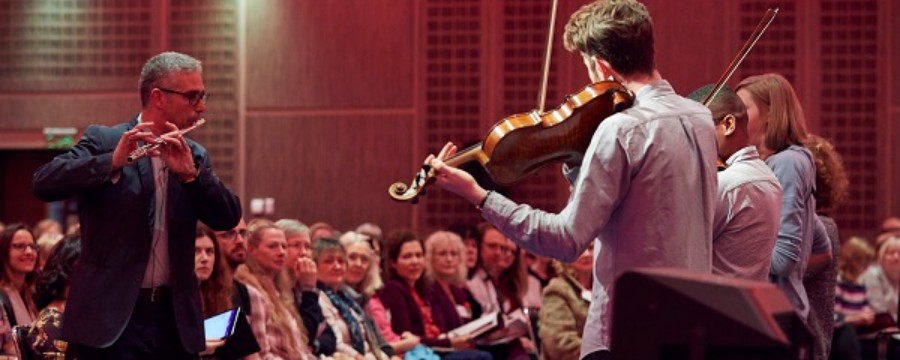#TE-02-08 Becoming a Better Music Teacher
About Course
ABRSMDescription
Learn new teaching methods to enhance your instrument or singing lessons
Vocal coaches and music teachers have an important role in improving their students’ ability to sing or play an instrument.
On this music teacher training course, you will learn to assess your current teaching strategies and look at new ways to engage your students during their lessons.
You’ll get instrument-specific advice and resources as well as guidance on how to plan music lessons within a broader curriculum.
You’ll gain the confidence to challenge your existing practices and identify weaknesses in your own teaching style in order to become a more effective music or singing teacher.
Who will you learn with?
I am the Chief Examiner and an Executive Director at ABRSM. Previously a teacher myself, I’m passionate about nurturing and encouraging the next generation of teachers and musicians.
Hi everyone, i’m an instrumental teacher who happens to also have a day job at ABRSM. I’m responsible for day to day management of this course and I look forward to meeting you!
Who developed the course?
The world’s leading provider of music exams, holding over 650,000 exams in over 90 countries each year. ABRSM makes significant donations towards music education initiatives around the world.
What Will I Learn?
- Reflect on and evaluate your journey to teaching so far
- Develop an understanding of a range of teaching and learning principles
- Compare teaching and learning principles and develop your own teaching philosophy
- Identify the core musical skills which need to be taught, considering how they inter-relate
- Evaluate your own instrumental technique and assess how you approach teaching technique to your pupils
- Explore the basis for motivation and how motivation is linked to progression
- Develop an understanding of the role of assessment in progression
- Assess your own teaching practice in the context of professional values and practice
- Design a broad, individual learning plan for pupils with reference to short term goals
- Engage with other teachers and contribute to discussion about professional development
Topics for this course
Welcome!
WE CAN’T WAIT TO MEET YOU! DISCUSSION
Hello!00:2:59
Reflect on your current teaching
Identifying a philosophical foundation for your teaching
Discovering specific learning and improvement areas
Exploring the multi-faceted role of the teacher
Engaging with a holistic approach to teaching
Devising teaching strategies and ideas
Contextualising and prioritising a pupils’ areas for development
Balancing priorities; notation, technique and interpretation
This is a very useful for all the readers of vocal coaches and music teachers, especially me, and I especially like a section, such as how to improve students' singing and playing ability.
As a result of this course, my music teaching experience will be much stronger than today, which will help me a lot in my teaching career as a music teacher.
If you want to be a good music teacher, then don't miss this music teacher training course, it will take you to find new ways to attract your students to the more intensive courses.
This course allows me to have a deeper reflection on the existing teaching methods and find out the weaknesses in my own teaching style, so as to become a more effective music or singing teacher. I love it.




